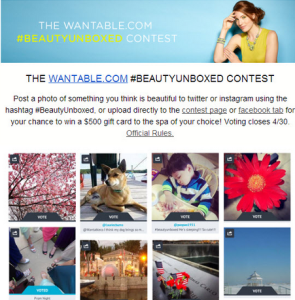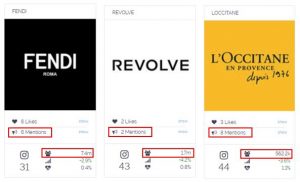To truly change the customer experience, personalization has to go beyond a simple name change in an email. In the e-commerce world, shoppers expect a certain level of ease and comfort, and those companies which can offer a more tailored experience are the ones bringing customers back again and again. By following these nine steps, you can ensure your customers feel right at home on your website as well.
How can companies personalize their e-commerce marketing efforts in a way that will be meaningful for customers? What’s your No. 1 tip?
1. Collect and Analyze Cookies

Collect and analyze cookies to create a homepage that’s personalized to the online user. Not only does this create personalization, but it also makes the shopping experience more convenient as well. – Andrew Schrage, Money Crashers Personal Finance
2. Display Recently Viewed Products

When personalizing your e-commerce strategy, it’s important to display recently viewed products as users scroll through various items. They’re looking at many different things, so it helps to redirect their attention where you want it to go rather than assume they’ll come back to the products later. Setting up your navigation this way leads to more sales and conversions. – Jared Atchison, WPForms
3. Choose the Right Platforms

Utilize platforms that can help you educate, nurture and build loyal customers. There are plenty of platforms that can help you with everything from abandoned cart emails to product and list segmentation. At the end of the day, people buy from you because they love your products. Making sure you know your customers and their likes is crucial to being meaningful in their eyes. – Maria Thimothy, OneIMS
4. Create Helpful Quizzes

Wouldn’t it be fantastic to provide each consumer with their own personal shopping assistant? But that’d be too expensive, right? Fortunately, if you own an e-commerce store, this isn’t the case. Using quizzes and size and style guidelines to provide on-site advice to your visitors can help them make smarter purchasing selections. This gives the impression that the store was created for them. – Baruch Labunski, Rank Secure
5. Let Users Self-Segment

You can personalize your e-commerce marketing strategy by allowing users to self-segment when signing up for emails from your brand. We like to ask users what kind of content they want to receive in the future. Once we learn what they like, they get put into an appropriate list. This technique allows us to send valuable, actionable content and offers consistently. – John Brackett, Smash Balloon LLC
6. Use Web Push Notifications

Companies can personalize their e-commerce marketing by sending visitors web push notifications. Once they opt in to receive them, you’re able to send them relevant messages straight to their browsers. Based on their activity, you can send them targeted offers, promotions, discounts and more to grab their attention and bring it back to your e-commerce site. – Stephanie Wells, Formidable Forms
7. Offer Product Recommendations

Based on a customer’s past purchasing behavior, a business can send emails with recommendations for products a customer could be interested in. People often buy things that complement or are related to their previous orders, and making recommendations for these items is a great way to personalize content and help your customers find things they need. – Syed Balkhi, WPBeginner
8. Send Abandoned Shopping Cart Reminders

One way to personalize your e-commerce marketing is to remind a customer to visit their abandoned shopping cart and to encourage customers to complete their purchase by offering them a discount or pointing out that your stock is running out. People who’ve placed a product in their cart have an interest in it. By gently reminding customers about it, you help them finish their purchase. – Blair Williams, MemberPress
9. Curate Interest-Based Email Newsletters

You can take your e-commerce marketing strategy to the next level by personalizing the emails you send to subscribers. We like to look at our customers’ order histories and curate email newsletters based on their interests. Using this strategy, we managed to increase our engagement and click-through rate because more people are getting emails that matter to them. – Chris Christoff, MonsterInsights
Digital & Social Articles on Business 2 Community
(40)
Report Post




